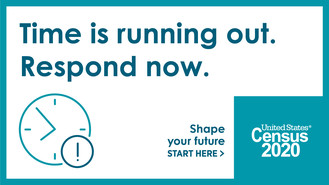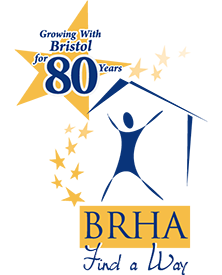“We Count People….Because People Count”
Bristol Counts 2020 Census
You should have received your 2020 Census forms in the mail, but you’ve got other options to respond! You can also complete the Census by mail or online. In ten minutes or less, you’ll help Bristol get its fair share of federal funding for important programs like education and law enforcement. We can’t do it without you!
- It’s quick and easy. The 2020 Census questionnaire will take about 10 minutes to complete.
- It’s safe, secure, and confidential. Your information and privacy are protected.
- Your response helps to direct billions of dollars in federal funds to local communities for schools, roads, and other public services.
- Results from the 2020 Census will be used to determine the number of seats each state has in Congress and your political representation at all levels of government.
“Your response matters”. Health clinics. Fire departments. Schools. Even roads and highways. The census can shape many different aspects of your community.

From HousingForward Virginia:
Last week, the U.S. Census Bureau published the first round of estimates from the 2019 American Community Survey.* The ACS, an annual sample survey of the country’s households, is one of the best resources we have to track changes in community housing and demographic profiles. This is the time of year I feel like Steve Martin when he sees new phonebooks.

The 2019 estimates will be especially helpful, as their timing allows researchers to establish a pre-pandemic baseline for the nation. Let’s take a look at how Virginia changed from 2018 to 2019:
- POPULATION: The percent increase in households (+0.5%) exceeded that of total population (+0.2%), indicating a trend toward household formation.
- INCOME: Median household income rose from $72,577 to $76,456.
- POVERTY: Total poverty rate dropped from 10.7% to 9.9%.
- HOMEOWNERSHIP: The homeownership rate saw no significant change—from 65.9% to 66.1%.
- COST BURDEN: The percent of households experiencing housing cost burden decreased from 30.1% to 28.2%. Both owners (–1.9%) and renters (–2.5%) saw a drop in their burdens.
- INEQUALITY: The Gini Index measure of inequality decreased slightly from from 0.4754 to 0.4690—a small march toward less inequality. (Perfect income equality is zero.)
These numbers show a Virginia that was making progress increasing economic and housing opportunity, with two very important caveats: 1) The full story requires disaggregation by race and income to see if these trends are at all dismantling entrenched patterns of racial inequality. And, of course, 2) All these estimates occurred prior to COVID-19.
While the eventual 2020 ACS release will tell a much fuller story, the Census Bureau has deployed an interim Household Pulse Survey to track how the coronavirus has impacted the economic circumstances of families and individuals. We’ll take a deeper dive into this survey in a future edition of The FWD.
* This initial release of 2019 ACS survey statistics only includes 1-year estimates, which cover states, large metropolitan areas, and localities with populations greater than 65,000. In December, the 2015-2019 5-year estimates will be released for smaller localities, towns, and census tracts.
The post The FWD: Hindsight in 2020 appeared first on HousingForward Virginia.
About the 2020 Census: The U.S. Constitution mandates a census of the population every 10 years. The 2020 Census counts everyone who lives in the U.S. on April 1, 2020. Census statistics help determine the number of seats each state holds in the U.S. House of Representatives and how billions of dollars in federal funds will be allocated by state, local, and federal lawmakers every year for the next 10 years.

